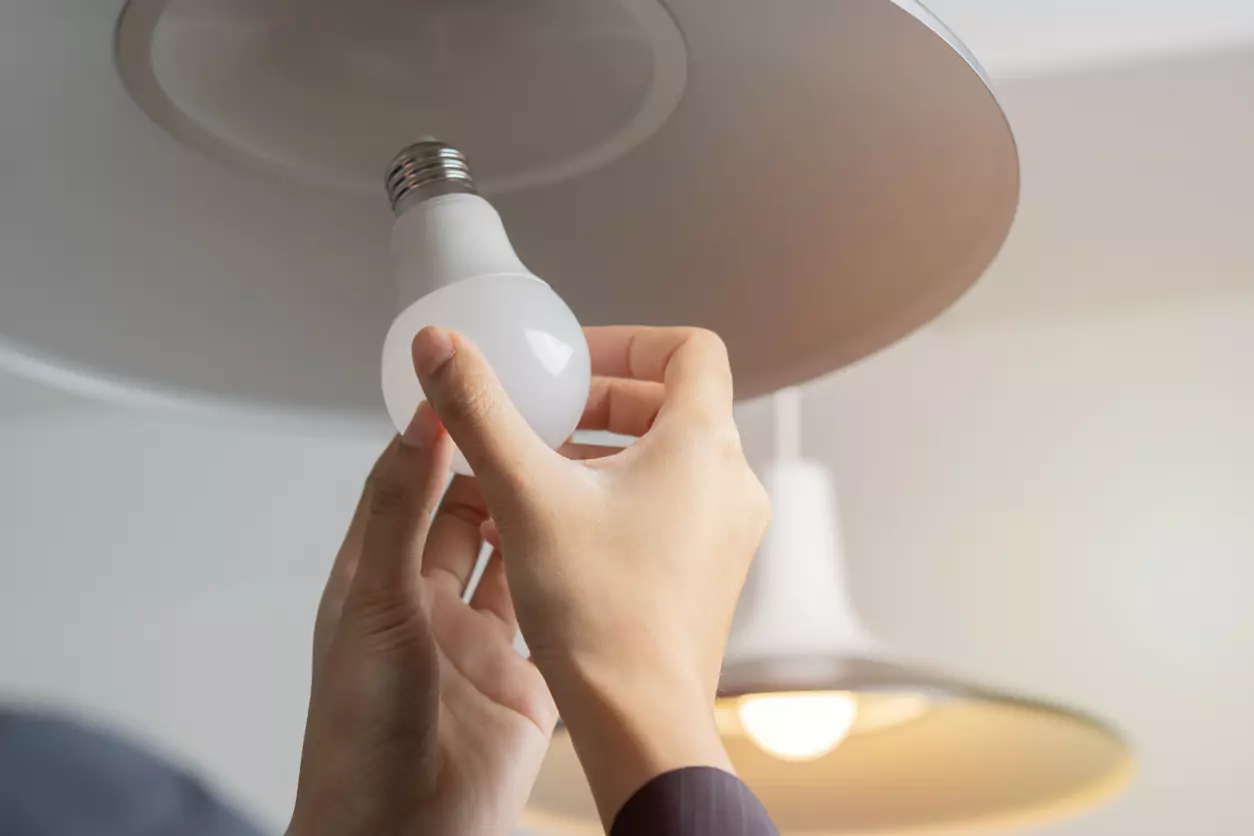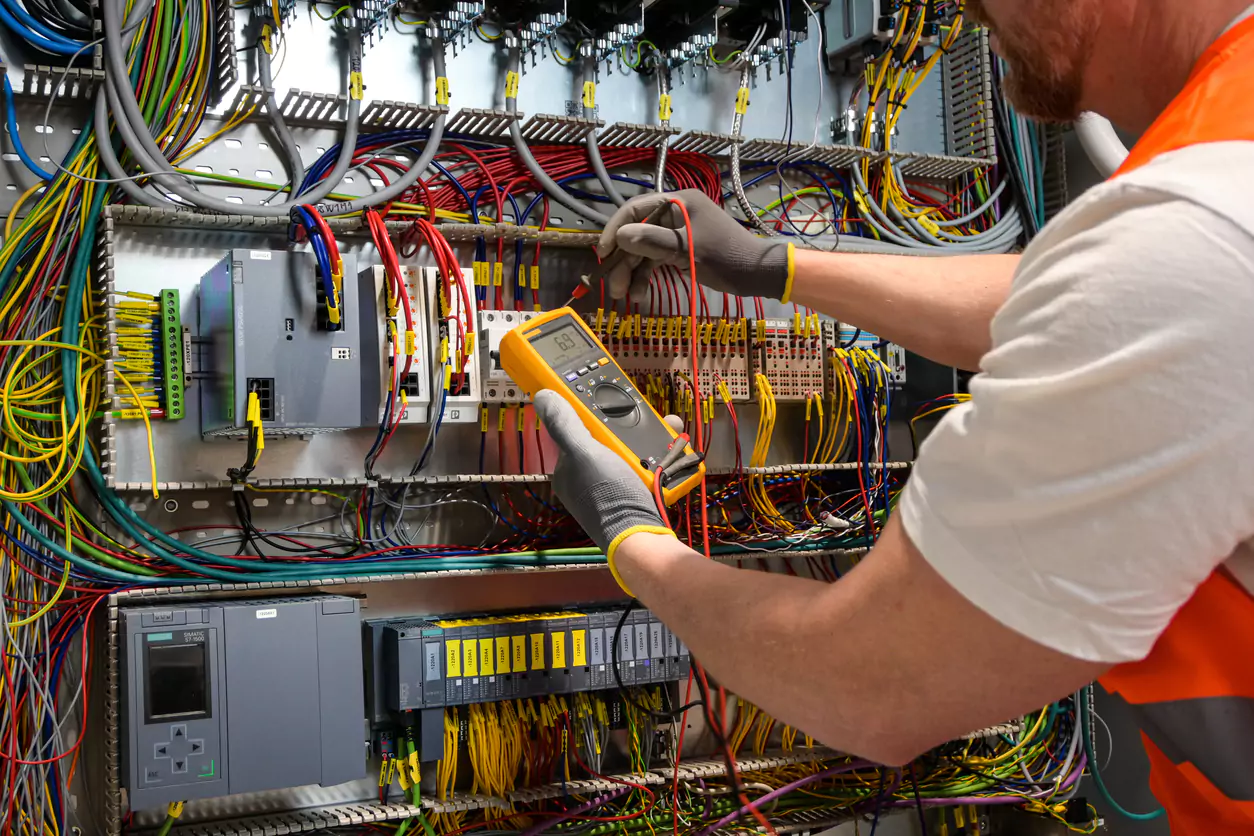Terrapin Electric – your trusted residential electrician
A home’s electrical system is its backbone, powering everything from kitchen appliances to climate control systems. While many homeowners only think about their wiring when something goes wrong, regular electrical inspections are essential for maintaining safety, efficiency, and compliance with local codes. In San Antonio, where the climate and infrastructure present unique challenges, professional electrical inspections help homeowners avoid hazards, reduce energy costs, and ensure their homes are up to standard.
Electrical issues are one of the leading causes of home fires in the United States. Aging wiring, overloaded circuits, and faulty connections can put a home at risk. A professional inspection can identify these issues before they become dangerous, providing peace of mind and protecting both residents and property. Whether buying a new home, remodeling or ensuring an existing system remains in top condition, regular electrical inspections are a smart investment.
What Is a Residential Electrical Inspection?
An electrical inspection is a thorough evaluation of a home’s electrical system to identify safety risks, efficiency concerns, and code compliance issues. Our licensed electricians perform these inspections by examining wiring, outlets, panels, breakers, and other components. The goal is to ensure that all electrical elements meet Texas building codes and that the system can safely handle the household’s energy needs.
When Should You Get an Electrical Inspection?
While most homeowners wait until a problem arises, there are several key situations where an electrical inspection is necessary:
A professional inspection ensures the electrical system is safe and up to code, preventing costly surprises after closing.
Any remodeling project that involves electrical work requires an inspection to confirm that the system remains compliant and safe.
Older homes often have outdated wiring, undersized breaker panels, or deteriorated components that need upgrading.
If a home has experienced power surges, electrical fires, or flood damage, an inspection can determine if repairs are needed.
Recurring electrical issues indicate a potential problem that an inspection can diagnose and resolve.
San Antonio homeowners benefit from proactive inspections that prevent emergency repairs and improve overall system reliability.

What Does an Electrical Inspection Include?
A comprehensive electrical inspection covers multiple aspects of a home’s power system. Our licensed electricians follow a detailed process to ensure that no critical issues are overlooked, evaluating everything from the electrical panel to individual outlets and switches. Each part of the system is examined for safety, efficiency, and compliance with modern standards.
The electrical panel serves as the central hub of a home’s power distribution, making it one of the most crucial components of an inspection. Our electricians first determine whether the breakers are appropriately sized for the home’s electrical load. If breakers are too small or improperly configured, circuits may trip frequently, while oversized breakers could pose serious fire hazards. Inspectors also look for any signs of overheating, corrosion, or improper wiring, as these issues could indicate deeper electrical faults.
Proper grounding and bonding are essential to prevent electrical shock hazards. The inspection ensures that grounding is correctly installed and that metal components, such as plumbing and gas lines, are properly bonded to the electrical system. Additionally, the breaker box should have clear, up-to-date labeling so homeowners can quickly identify circuits. If the home has an outdated panel, such as a Federal Pacific or Zinsco model, replacement is strongly recommended due to known safety risks.
Faulty wiring is one of the most common causes of residential electrical fires, making this part of the inspection particularly important. Our electricians examine the type and condition of the wiring to verify that it meets modern safety standards. Some older homes in San Antonio still have aluminum wiring, which can degrade over time and pose fire risks if not properly maintained.
The inspector will also check whether the home’s circuits are correctly configured to prevent overloading. Homes that have added new appliances or technology without upgrading their electrical infrastructure often experience strain on their circuits, increasing the risk of overheating. Junction boxes, where multiple wires connect, must be secure and properly enclosed to eliminate the potential for sparks or exposed wiring. Every element of the system must also align with both Texas state regulations and the National Electrical Code (NEC).
Every outlet and switch in the home must be tested to ensure it is safe and fully operational. Loose connections can lead to sparking, overheating, or intermittent power loss, so our electricians carefully examine each one for signs of wear or improper installation. Special attention is given to ground fault circuit interrupter (GFCI) outlets, which are required in kitchens, bathrooms, and other wet areas. These outlets are designed to shut off power instantly in the event of an electrical fault, reducing the risk of electrocution.
The inspection also includes testing arc fault circuit interrupter (AFCI) protection, which helps prevent fires caused by electrical arcing. AFCI technology detects dangerous arc faults and disconnects power before the wiring overheats. If an inspector finds that AFCI protection is missing or outdated, an upgrade may be necessary. Outlets and switches are also checked for signs of overheating, such as discoloration or a warm surface. For homes with children, tamper-resistant outlets are recommended as an additional safety measure.
An effective grounding system is critical to preventing shocks and ensuring electrical safety throughout the home. During an inspection, our electricians confirm that the grounding system meets modern safety standards. If grounding is inadequate, power surges and static electricity buildup can put both people and electronics at risk.
Bonding is another important factor, particularly for metal pipes and gas lines, which should be properly connected to the home’s electrical system to prevent unexpected voltage buildup. Inspectors also verify that a home has an appropriate grounding rod or an alternative grounding system that safely dissipates electrical energy into the earth. Without proper grounding, electrical faults could result in dangerous shocks or damage to appliances.
San Antonio’s frequent thunderstorms and fluctuations in the power grid can lead to power surges, which can cause irreparable damage to appliances and sensitive electronics. To mitigate these risks, our electricians evaluate whether a home has adequate whole-home surge protection. Unlike plug-in surge protectors, a whole-home system safeguards all electrical devices by blocking excessive voltage at the main panel.
The inspection also looks for signs of irregular voltage patterns that could indicate underlying power quality issues. Unstable voltage levels can affect the performance of high-efficiency appliances and home automation systems. If necessary, our electricians may recommend dedicated circuits or additional protective devices to stabilize the electrical supply. Circuits that support sensitive electronics, such as computers or medical devices, should be properly rated to prevent disruptions and equipment damage.

Common Electrical Issues Found During Inspections
San Antonio homes often present unique electrical challenges, particularly in older properties or homes that have undergone renovations or DIY electrical modifications. Many homes built several decades ago were not designed to handle today’s electrical demands, while unpermitted work can introduce safety hazards that go unnoticed until a professional inspection is performed. During an inspection, electricians often uncover issues that could pose serious risks to homeowners, from outdated wiring systems to improperly installed circuits.
Outdated or Overloaded Electrical Panels
One of the most common problems found in residential electrical inspections is an outdated or overloaded electrical panel. Many older homes in San Antonio still rely on 100-amp service panels, which were sufficient for homes built in the mid-to-late 20th century. However, modern households require significantly more power due to the increased use of high-wattage appliances, HVAC systems, and smart home technology. A 200-amp service panel is now the standard for most new homes, ensuring that electrical loads are distributed safely and efficiently. Older panels may also contain outdated or defective circuit breakers that fail to trip when overloaded, creating a serious fire hazard. Brands such as Federal Pacific Electric (FPE) and Zinsco are notorious for these types of failures and should be replaced immediately if found during an inspection. Additionally, some panels have double-tapped breakers, where two circuits are connected to a breaker designed for only one. This can cause overheating and increase the risk of electrical fires.
Knob-and-Tube or Aluminum Wiring
Wiring systems in older homes are another frequent source of concern. Knob-and-tube wiring, commonly installed in homes built before the 1950s, lacks a grounding conductor, which means that it does not provide protection against electrical faults. This outdated system is also prone to insulation deterioration over time, increasing the likelihood of exposed wires and short circuits. Knob-and-tube wiring is no longer considered safe by modern electrical standards and should be replaced. Aluminum wiring, found in homes built between the 1960s and 1970s, poses a different but equally serious risk. While aluminum was once used as a cost-effective alternative to copper, it has been found to be more prone to oxidation and expansion, which can loosen connections over time. This can result in overheating at outlets, switches, and breaker panels, leading to a high risk of electrical fires. During an inspection, electricians check for aluminum wiring and recommend safe replacement options or approved remediation methods, such as specialized connectors that reduce fire hazards.
Improper DIY Electrical Work
Electrical work that has been done without permits or by untrained individuals is another major issue uncovered during home inspections. Many homeowners attempt DIY electrical modifications to save money, but improper installations can introduce dangerous conditions. Some of the most common problems found include overloaded junction boxes, where too many wires are crammed into a single enclosure, creating a risk of overheating and short circuits. Exposed wiring is another frequently discovered issue, often found in unfinished basements, attics, or garages. Wires that are left uncovered or poorly insulated are more vulnerable to physical damage, which can lead to arcing and fire hazards. Insecure electrical connections — such as wires that are twisted together without proper wire nuts or connections that have not been properly fastened — can also cause intermittent power failures and overheating. Without proper grounding and adherence to code requirements, DIY electrical work can leave homeowners at risk for electrocution, appliance damage, or serious electrical failures. Inspections help identify these hazards and ensure that all wiring and connections are properly installed.
Lack of GFCI and AFCI Protection
Another critical issue found during inspections is the absence of ground fault circuit interrupters (GFCI) and arc fault circuit interrupters (AFCI), both of which are now required by modern electrical codes. GFCI outlets are designed to prevent electrocution by shutting off power when they detect an imbalance in the electrical current, such as when moisture is present. These outlets are required in bathrooms, kitchens, laundry rooms, garages, and outdoor spaces, yet many older homes still lack this protection. Similarly, AFCI protection is required for circuits in bedrooms, living areas, and other habitable spaces to prevent electrical fires caused by arcing faults. Arcing occurs when electrical current jumps between improperly connected or deteriorating wires, creating sparks that can ignite nearby materials. Homes that were wired before AFCI requirements were introduced in the late 1990s and early 2000s often lack this protection, making them more vulnerable to electrical fires. During an inspection, electricians test for the presence of GFCI and AFCI protection and recommend installing these devices if they are missing. Upgrading to modern circuit interrupters significantly improves electrical safety, ensuring that the home meets current National Electrical Code (NEC) standards.
Professional electricians trusted by top brands















Ensuring a Safe and Code-Compliant Electrical System
Many of the electrical issues uncovered during an inspection stem from outdated materials, improper modifications, or a failure to keep up with evolving safety standards. Without regular inspections, these problems often go unnoticed until they result in power failures, appliance damage, or even catastrophic electrical fires. By identifying and addressing these common issues, homeowners can protect their families, extend the lifespan of their electrical systems, and ensure their homes meet modern safety codes.
The Role of Electrical Inspections in Home Safety
A thorough electrical inspection is more than a routine assessment — it plays a critical role in protecting a home from fire hazards, electrocution risks, and costly system failures. Electrical issues are one of the leading causes of house fires, and many of these dangers remain hidden behind walls or within outdated wiring. By identifying and resolving potential fire hazards, professional inspections provide homeowners with greater peace of mind and a safer living environment.
Beyond safety, electrical inspections also contribute to energy efficiency. Homes with aging or inefficient wiring often waste energy due to voltage fluctuations and resistance in old circuits. By upgrading outdated systems, homeowners can lower their electricity bills and reduce strain on the power grid. Inspections also help prevent unexpected breakdowns that lead to expensive emergency repairs. Rather than waiting for a failure that could disrupt daily life, homeowners who schedule regular inspections can address small issues before they become major problems.
Code compliance is another essential factor. Electrical standards evolve to reflect improved safety practices, and an inspection ensures that a home meets the latest requirements set by both Texas regulations and the National Electrical Code (NEC). For those planning to sell their homes, having an up-to-date electrical system can prevent delays in the home inspection process and increase property value. With the increasing demand on Texas’s power grid, ensuring that a home’s electrical system is properly rated and compliant is more important than ever.
Why Choose Terrapin Electric for Your Home Inspection?
Not all electrical inspections provide the same level of thoroughness, which is why homeowners in San Antonio trust Terrapin Electric for expert assessments and reliable service. Our team of licensed and certified electricians ensures that every inspection meets Texas state regulations and the latest safety standards. Licensing and ongoing training are at the core of our commitment to excellence, guaranteeing that every inspection is performed with precision, safety, and compliance in mind.
Experience matters, especially in a city with as much architectural diversity as San Antonio. Many homes in the area were built decades ago, some with outdated wiring that may no longer be safe or up to code. Terrapin Electric's electricians have extensive experience with both modern and legacy electrical systems, allowing us to assess older homes with the expertise needed to recommend safe and effective upgrades. Our inspections go beyond a basic checklist — every component of your home's electrical system is carefully examined to uncover hidden issues before they become costly problems.
Once your inspection is complete, we provide clear, detailed reporting that outlines the current condition of your home's electrical system. If upgrades or repairs are needed, we offer straightforward recommendations tailored to your home's specific needs. With Terrapin Electric, you won't be left guessing about the safety of your electrical system — you'll have a complete understanding of its condition and a clear path forward. Whether you're purchasing a home, remodeling, or ensuring your system remains reliable, we're here to help you keep your home safe, efficient, and up to code.

Schedule Your Electrical Inspection Today
Whether you are moving into a new home, remodeling, or simply ensuring your electrical system remains safe, a residential electrical inspection is a critical part of homeownership. By identifying hazards, improving efficiency, and ensuring compliance with modern codes, inspections provide peace of mind and long-term value.
If you need a reliable electrical inspection in San Antonio, contact Terrapin Electric today. Our licensed electricians are ready to help you keep your home safe, efficient, and up to code.

